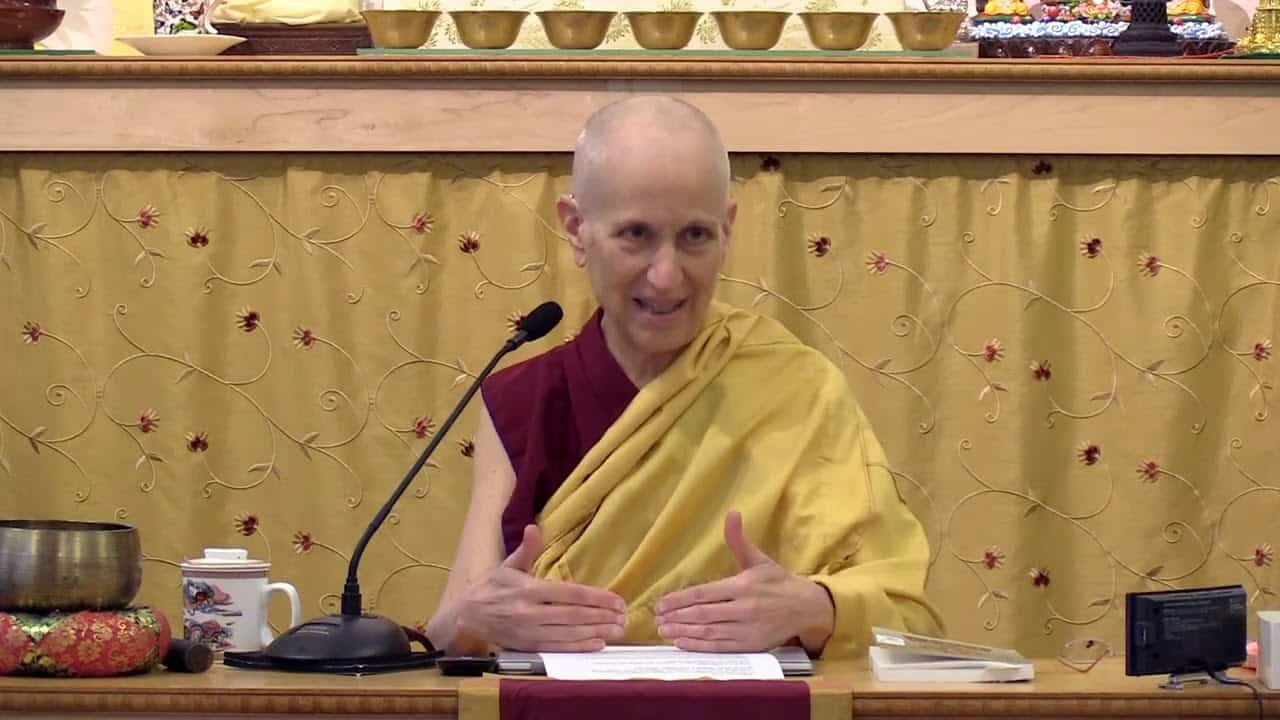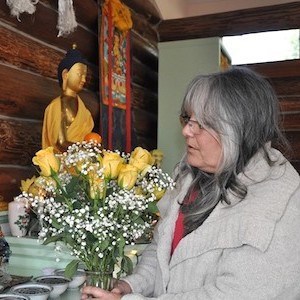The workings of karma
77 The Foundation of Buddhist Practice
Part of an ongoing series of teachings (retreat and Friday) based on the book The Foundation of Buddhist Practice, second volume in “The Library of Wisdom and Compassion” series by His Holiness the Dalai Lama and Venerable Thubten Chodron.
- Projecting karma, completing karma
- Rebirth and conditions or experiences within that rebirth
- Examples for combinations of projecting karma and completing karma
- Collective karma and individual karma
- Results in experiences that are common and individual
- Being careful about which groups we associate with
- Naturally non virtuous actions
- Proscribed actions those regulated by taking precepts
- Negativity and obscuration
- Offence or downfall and how to purify
The Foundation of Buddhist Practice 77: The Workings of Karma (download)
Contemplation points
- What is the difference between projecting and completing karma? What is required for something to be a projecting (aka throwing) karma? Make examples of the four combinations of virtuous and non-virtuous projecting and completing karma.
- If someone is reborn in a poor family, where food, clothing, and other necessary requests for survival are difficult to obtain, is that good or bad throwing karma? Good or bad completing karma? Explain in your own words some of the specific actions that might lead to this kind of result?
- Make some examples of collective karma that you see in the world around you and some that you may have experienced in your own life. How is this different from individual karma? From your own experience, make some examples of collective and individual karma being experienced at the same time.
- What kinds of groups did you join because that’s what everyone else around you did? What groups did you choose to join and why? What kinds of groups did you leave and why? Why is it important to consider this?
- We may have the virtuous projecting karma of being born as a human but the non-virtuous completing karma to experience sickness. We may receive excellent medical support but often we still look at the negative sides. Why do we tend to not see the good circumstances in life?
- What are naturally negative vs. proscribed actions? Make some examples of each, some that are both, and some that are neither.
Venerable Thubten Chodron
Venerable Chodron emphasizes the practical application of Buddha’s teachings in our daily lives and is especially skilled at explaining them in ways easily understood and practiced by Westerners. She is well known for her warm, humorous, and lucid teachings. She was ordained as a Buddhist nun in 1977 by Kyabje Ling Rinpoche in Dharamsala, India, and in 1986 she received bhikshuni (full) ordination in Taiwan. Read her full bio.


